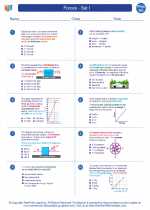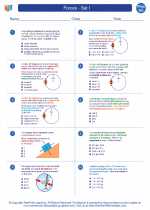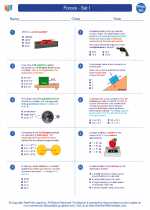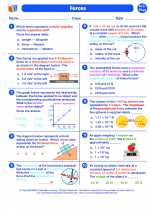Decomposition Reaction
A decomposition reaction is a type of chemical reaction in which a compound is broken down into two or more simpler substances. This process usually involves the application of heat or the introduction of a catalyst.
General Equation for Decomposition Reaction
The general equation for a decomposition reaction is:
AB → A + B
Where AB represents the compound that is being decomposed, and A and B represent the simpler substances produced as a result of the reaction.
Examples of Decomposition Reactions
Some common examples of decomposition reactions include:
- Decomposition of water: 2H2O → 2H2 + O2
- Decomposition of calcium carbonate: CaCO3 → CaO + CO2
- Decomposition of hydrogen peroxide: 2H2O2 → 2H2O + O2
Factors Affecting Decomposition Reactions
Several factors can affect the rate of a decomposition reaction:
- Temperature: Higher temperatures generally increase the rate of decomposition reactions.
- Presence of Catalysts: Catalysts can speed up decomposition reactions by providing an alternative reaction pathway with lower activation energy.
- Concentration of Reactants: Higher concentrations of reactants may lead to a faster rate of decomposition.
Study Guide for Decomposition Reactions
When studying decomposition reactions, it's important to:
- Understand the general equation for a decomposition reaction and be able to identify examples of such reactions.
- Recognize the factors that can affect the rate of a decomposition reaction, and explain how each factor influences the reaction.
- Practice balancing chemical equations for decomposition reactions to ensure a thorough understanding of the process.
- Explore real-world applications of decomposition reactions, such as in the decomposition of organic matter or the production of industrial chemicals.
By mastering the concepts and examples of decomposition reactions, students can develop a solid understanding of this fundamental aspect of chemical reactions.
.◂Physics Worksheets and Study Guides High School. Forces - Set I

 Worksheet/Answer key
Worksheet/Answer key
 Worksheet/Answer key
Worksheet/Answer key
 Worksheet/Answer key
Worksheet/Answer key
